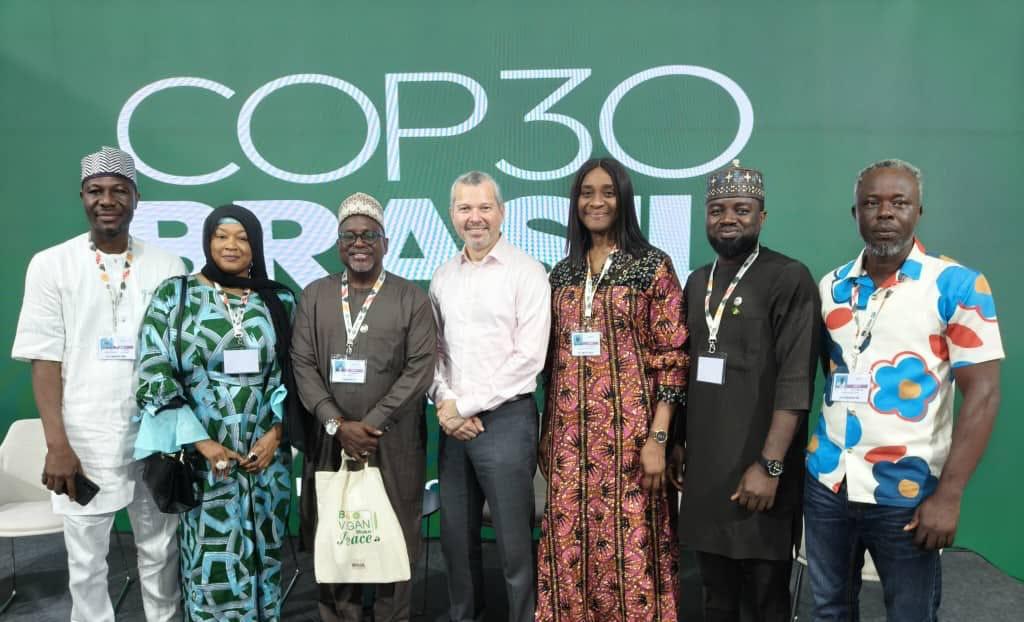The Nigerian Maritime Administration and Safety Agency (NIMASA) has unveiled a pioneering Public-Private Partnership model for African maritime decarbonisation with the launch of the Nigerian Maritime Continuous Emissions Monitoring System.
The presentation took place at the 2025 UN Framework Convention on Climate Change (UNFCCC COP 30) in Belém, Brazil, marking a major step in Nigeria’s efforts to align with global energy-transition standards.
The system — developed in collaboration with researchers from University College London (UCL) — was showcased during a NIMASA-hosted side event, where the agency highlighted its continued commitment to advancing the International Maritime Organisation’s (IMO) decarbonisation and energy-transition objectives through digital innovation.
Representing the Director-General, Dr Dayo Mobereola, the Director of the Marine Environment Management Department, Dr Oma Ofodile, emphasised that NIMASA has consistently pursued technological pathways to reduce emissions within Nigeria’s maritime industry.
She noted that the new monitoring platform will help transform the IMO’s environmental ambitions into measurable national progress.
NIMASA’s decarbonisation advocacy has been steadily evolving. At COP 28, the agency called for an African Coalition to support the implementation of the IMO’s greenhouse-gas reduction strategies. At COP 29, it convened expert panels and presented progress toward establishing a verifiable Nigerian maritime emissions inventory, carried out with UCL researchers as part of a broader initiative to prepare Nigeria for a low-carbon maritime future.
This year’s presentation at COP 30 formally introduced the continuous emissions monitoring system, which is expected to provide real-time data, strengthen regulatory compliance and position Nigeria as a continental leader in maritime environmental governance.
Roel Hoeders, who represented the IMO Secretary-General, praised NIMASA for its leadership in convening a forward-looking session aimed at deepening discussions around Africa’s role in the global energy transition and identifying strategies to overcome the unique challenges facing developing maritime nations.
The event brought together experts from the IMO, UCL, the maritime administrations of Ghana, Kenya and Tanzania, Lagos State’s Ministry of Planning and Budget, the Federal Ministry of Marine and Blue Economy, and the Nigerian Ports Authority, among others.
COP 30 is expected to culminate in an agreement on indicators for measuring progress toward the Global Goal on Adaptation (GGA) established under the Paris Agreement — a significant milestone aimed at refining and streamlining the 100 indicators linked to the 11 targets of the 2023 GGA Framework.
